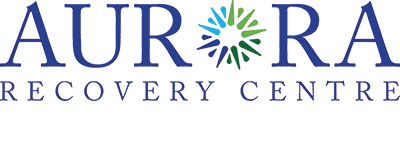It’s a brave step when you commit to giving up alcohol or other addictive substances. So congratulations on making the first step in your journey to recovery. What you need now is a thoughtful roadmap, a plan that defines and prioritizes your goals to help you reach your destination.
In the early stages of recovery, you may feel optimistic you’re going to beat your substance use disorder this time. Nevertheless, it’s important to remember recovery is a journey that requires a thoughtful plan. Your plan defines and prioritizes your goals and serves as a roadmap to help you reach your destination.
At Aurora Recovery Centre, our team of knowledgeable and compassionate professionals will help you create a personalized recovery plan that sets appropriate goals that align with your unique needs and circumstances.
Establishing SMART goals can help. The acronym means Specific, Measurable, Achievable, Relevant and Time-limited or Timely, Alberta Health Services explains in this document.
Let’s look at how you can apply SMART goals to recovery:
- Specific. Ask yourself, ‘What do I want to accomplish?’ Specific goals, such as becoming sober, are clear, concise and well-defined.
- Measurable. Once you have set a specific goal, you’ll have to figure out if you are achieving it by creating small, measurable action steps. Examples might include attending support group meetings three times a week and finding a new sober activity to engage in with a loved one or friend by next weekend.
- Achievable. Consider whether you have the necessary resources and time to achieve your goal and if you can realistically achieve it. Here’s an example of an achievable goal: “I will successfully complete a 45-day residential treatment program.”
- Relevant. While your goal should push you out of your comfort zone, it should be achievable and should align with your life purpose. Remember, unrealistic goals can lead to frustration while realistic ones foster motivation and progress.
- Time-limited. Timely goals make you accountable. Setting a goal to meditate for five minutes a day after breakfast beginning today makes you more accountable than simply setting a goal to meditate. Include specific dates and times of therapy appointments, group meetings, yoga practices and so on.
Documenting your recovery plan rather than relying on memory makes it concrete and allows you to review it regularly.
Plan ahead by thinking about what could make it hard to achieve your goal and celebrate small victories.
A support team can help you achieve your goals, particularly when the going gets tough. While you’re in treatment at Aurora Recovery Centre, your support team will include our team of professionals and fellow residents.
A treatment plan is an evolving document and must be reviewed and adjusted as goals are met. Upon completion of the residential portion of your program, you will celebrate the success of achieving an important goal. As you set new, specific goals to maintain sobriety, you’ll create new measurable action steps like attending weekly alumni group meetings and becoming an Alumni Peer Support person.
Remember, a treatment plan provides direction, structure and a valuable framework for growth and healing and will allow you to track your progress and stay motivated. Achievable goals are more than just to-do items. They will set you up for success and support every step of your rewarding journey to recovery.
With the right tools and support, you can recover from addiction. Take your first step towards a more fulfilling life by contacting Aurora Recovery Centre today.

